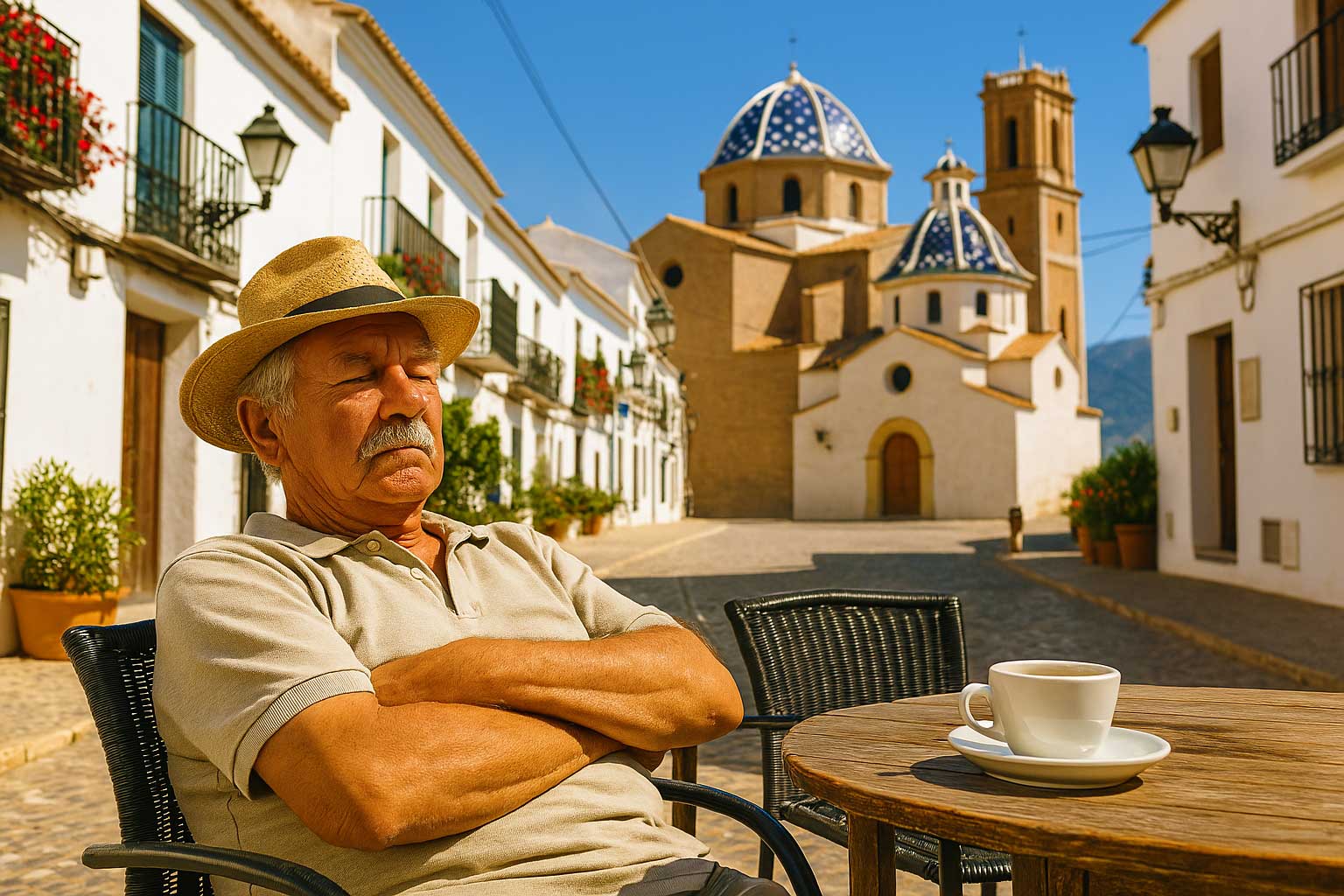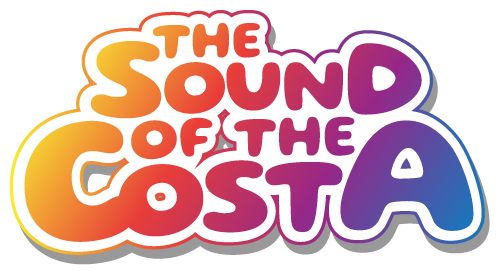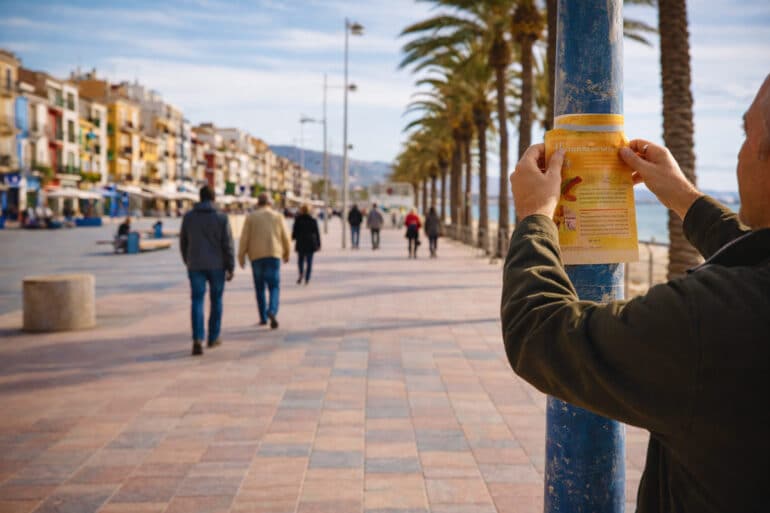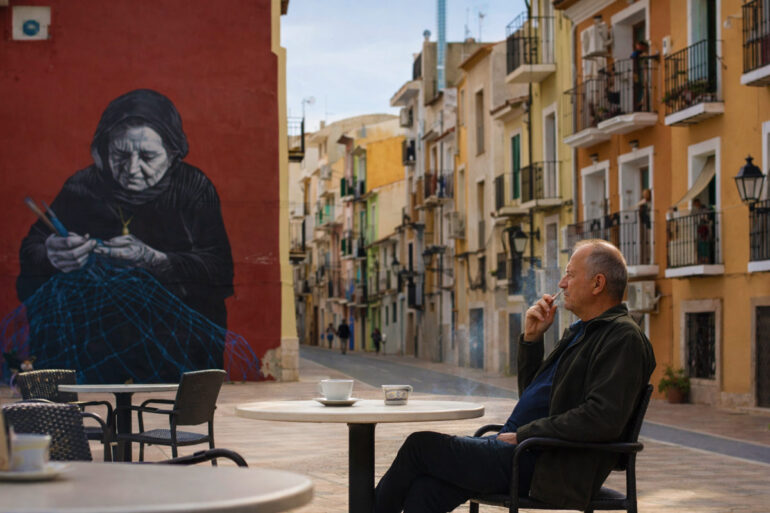Listeners:
Top listeners:
00:00
00:00
volume_up
chevron_left
-
 play_arrow
play_arrow
Costa Blanca Radio The Sound Of The Costa
-
 play_arrow
play_arrow
FeelGood Radio The Sound Of The Costa
music_note

share
close
When I first moved to Spain, I genuinely thought my installer had passed away. Not because he was ill, but because he’d promised me three times that he’d come “mañana,” which I naively interpreted as “I’ll be there tomorrow.” Then he disappeared for four full days. No call, no message—nothing. I pictured the whole thing: grieving family, me at the doorstep with flowers. But on day five, he walked in cheerfully, half a chocolate croissant in hand, utterly unfazed. “Tranquila, mujer,” he said. “Todo bien.”
And that moment? I’ll never forget it. Because right there—between the chocolate croissant and his completely relaxed attitude—I learned that time in Spain moves in an entirely different way.
Why mañana actually means “maybe”
In Dutch culture, time is tight. Agendas, schedules, appointments from 3:15 to 3:35 sharp. But in Spain? Time is… fluid. Flexible. More of a suggestion than a commitment. Just like we sometimes say, “I’ll see what I can do.” The famous “mañana, mañana” — literally “tomorrow, tomorrow” — rarely means actually tomorrow. It really means: “not now.” Or: “when I get around to it.” Or: “no promises, but I’ll turn up eventually.”
In many Spanish regions, this isn’t laziness — it’s a culturally rooted way of life, where relationships, spontaneity, and peace of mind often outweigh punctuality.
Historically shaped and climate-driven
The slower pace is partly practical. During the hottest hours of the day, people here don’t work — they rest. The siesta, though fading in cities, is still deeply rooted in the culture. That’s why life starts late, shops close from 2 to 5 PM, and dinner doesn’t begin until after sunset. You don’t cram your day with appointments, because the day itself is unpredictable. And what doesn’t get done today? You’ll handle it mañana.
A well-known Spanish expression says: “No pasa nada.” Literally: “nothing’s happening,” but culturally it means: it’s fine, don’t worry.
In the Spanish mindset, life is less about efficiency and more about harmony. Time is something you share with people, not something you manage. Running into a friend on the street might mean arriving twenty minutes late to your appointment — but the social moment takes priority.
By the way, there’s more to say about when life starts and ends here. For decades, Spain has been living in a time zone that technically doesn’t match its geography — and that affects the entire daily rhythm. Elena wrote more about this in her recent article on sleep, daylight saving time, and the Spanish body clock.
What it taught me (and sometimes still costs me)
I’ll admit it: I’ve driven myself crazy more than once. Because the technician didn’t show up. Or the bus. Or the package. Because no one confirms anything. Because even the dentist casually takes a 15-minute “margin.”
But to be honest, it’s changed me too. I check the clock less. I plan less tightly. I’ve come to understand that life doesn’t always follow straight lines — sometimes it winds along a path where you just need to stop and take it all in.
And yes, sometimes the waiting still drives me crazy. But then I think back to that installer with his chocolate croissant. And I know: he was right.
Tranquila. Todo bien.
Written by: Eva van Rijn
Eva's Spain mañana mañana slow life in Spain Spanish culture Time perception in Spain Viva Cultura
Rate it
Similar posts
© 2025 The Sound Of The Costa; All Rights Reserved







